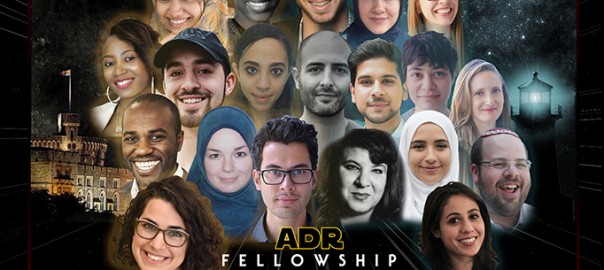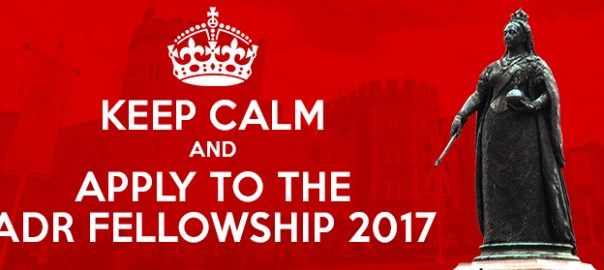Pride and Tears from Paris
 2015 has started in a tragic manner with the recent terrorist attacks in France. I was in Paris on the 7th January at 11am at the start of a tragedy, which would capture the world’s attention until its dramatic conclusion two days later. Like most people living in this beautiful city, I experienced all at once shock, bewilderment, fear, pain and outrage throughout the crisis. Then came the pride of witnessing on that historical Sunday an unprecedented mobilization across social backgrounds, cultures and religions against obscurantism and violence. With over 4 million people marching together under the banner Je suis Charlie, this was the largest-ever public demonstration in modern France. La France debout (France rises) was a great comfort to someone like me who chose to become a French citizen and espouses its values, its distinct identity and its cultural legacy.
2015 has started in a tragic manner with the recent terrorist attacks in France. I was in Paris on the 7th January at 11am at the start of a tragedy, which would capture the world’s attention until its dramatic conclusion two days later. Like most people living in this beautiful city, I experienced all at once shock, bewilderment, fear, pain and outrage throughout the crisis. Then came the pride of witnessing on that historical Sunday an unprecedented mobilization across social backgrounds, cultures and religions against obscurantism and violence. With over 4 million people marching together under the banner Je suis Charlie, this was the largest-ever public demonstration in modern France. La France debout (France rises) was a great comfort to someone like me who chose to become a French citizen and espouses its values, its distinct identity and its cultural legacy.
At the same time, I could not help a feeling of malaise towards those who brandish the principle of laïcité (a French version of secularism) as the only legitimate response to terrorism. This particular outlook on society is deeply entrenched in French history. It dates back to a law of 1905 that strictly defines the boundaries between state and religion and came about as the definitive extinction of the Catholic Church’s interference in politics and society. It was also enacted in order to ensure the equal treatment of religious minorities, particularly Protestants and Jews. Its impact has proven decisive in shaping the values of la République of which France is so proud. It influenced the mindset of generations of politicians, workers, civil servants and teachers. It created a public space where religious differentiation would simply not be allowed, in the name of égalité and fraternité (equality and human solidarity). It also means that in the name of integration, which in the French context can mean assimilation, hyphenated identities are not welcome.
Laïcité, however,has simply not stood the test of time, nor France’s demographic transformation and economic challenges. To many, laïcité is deemed an unjust curtailment of individual freedom, that very liberté which is the third pillar of the French Republic. Adopting any sign of religious belonging is frowned upon, to say the least. When it comes to religion, the public display of individual identities is sacrificed on the altar of the Nation. While the interdiction of such display is only officially limited to public institutions, such as schools or government offices, it effectively limits individual liberty and forces many to lead a double existence: my hijab or my kippa ismy way to practice my faith but I must take it off not to lose my job, especially that the State is still the largest employer in a country that suffers from chronic unemployment. Discrimination is widespread in French society, not only by the name you carry, the way you look, or the color of your skin but increasingly because of your religion. Redressing such inequalities, particularly in the work place, is confronted with numerous legal hurdles because remember: religious differences don’t officially exist. Indeed, the State imposition of laïcité is itself largely responsible for preventing France from embracing its extraordinary diversity.
 Discussing the tragic events with a taxi driver, he wondered why in a country that insists on laïcité, the media wags a collective finger at les musulmans for causing social evils, and in the same stroke forgets to commend Muslims for bravery. The police officer who was shot at point blank in front of the Charlie Hebdo offices was referred to as a policier. The fact that he was Muslim simply mattered less. In his initial statement after the horrific killings, the French Prime Minister Manuel Valls stated: nous sommes tous Charlie, nous sommes tous policiers, nous sommes tous juifs (we are all Charlie, we are all policemen, we are all Jews). Many resented the fact that he omitted adding: nous sommes tous musulmans (we are all Muslims). I did. He ignored the fears and the outrage of nearly 10% of French population, equally shocked, which does not condone such acts of savagery, yet is at risk of bearing the collective responsibility. On TV, the mayor of a Paris suburb wondered where les quartiers (read poor Muslim neighborhood) wereduring the explosion of solidarity on the 11th January. Did he mean to divide the “haves” from the “have-nots”, the secular urbanites from the religious banlieues on this unprecedented day of solidarity? A bewildering comment indeed, especially from a French public official. He simply could not acknowledge a spontaneous uprising that restored the greatness of the French people. Together.
Discussing the tragic events with a taxi driver, he wondered why in a country that insists on laïcité, the media wags a collective finger at les musulmans for causing social evils, and in the same stroke forgets to commend Muslims for bravery. The police officer who was shot at point blank in front of the Charlie Hebdo offices was referred to as a policier. The fact that he was Muslim simply mattered less. In his initial statement after the horrific killings, the French Prime Minister Manuel Valls stated: nous sommes tous Charlie, nous sommes tous policiers, nous sommes tous juifs (we are all Charlie, we are all policemen, we are all Jews). Many resented the fact that he omitted adding: nous sommes tous musulmans (we are all Muslims). I did. He ignored the fears and the outrage of nearly 10% of French population, equally shocked, which does not condone such acts of savagery, yet is at risk of bearing the collective responsibility. On TV, the mayor of a Paris suburb wondered where les quartiers (read poor Muslim neighborhood) wereduring the explosion of solidarity on the 11th January. Did he mean to divide the “haves” from the “have-nots”, the secular urbanites from the religious banlieues on this unprecedented day of solidarity? A bewildering comment indeed, especially from a French public official. He simply could not acknowledge a spontaneous uprising that restored the greatness of the French people. Together.
A day after the historical demonstration, I attended a formal evening at the Paris Opera to celebrate the 40th anniversary of the partnership between two outstanding scientific institutes: Weizmann and Pasteur. The lead performer was Patrick Bruel, a popular French singer and actor. I will be terribly un-French by adding that he is Jewish with Tunisian roots. After a minute of silence, he pronounced the sentence that by now had become a national slogan: nous sommes tous Charlie, nous sommes tous juifs and added nous sommes tous musulmans, nous sommes tous français (we are all Muslims, we are all French). The audience, mostly Jewish, gave a standing ovation despite having lost four members of their community to a self-proclaimed jihadist. The Prime Minister was present.
At last, fierce and quasi-obsessive debates are now taking place all over France on what went wrong, how to better recognize the Other, how to rebuild a more inclusive citizenship. And yes, even how to revisit laïcité – a value whose sound foundations have soured into dogmatism and exclusion.
This national catharsis makes me proud once again of being French.
Firoz Ladak CEO Edmond de Rothschild Foundations





